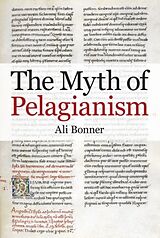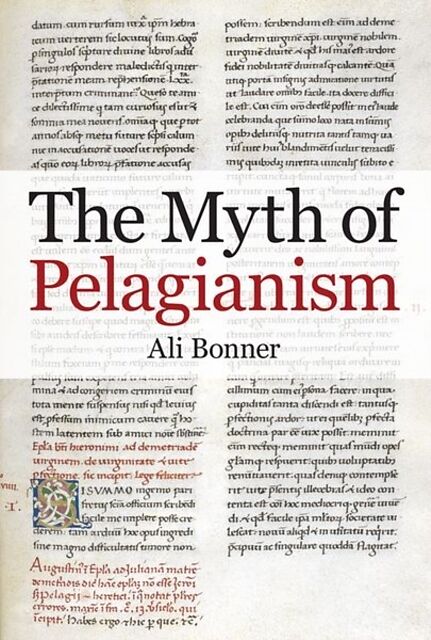The Myth of Pelagianism
Einband:
Fester Einband
EAN:
9780197266397
Untertitel:
Englisch
Genre:
Religion & Theologie
Autor:
Ali Bonner
Herausgeber:
OUP Oxford
Anzahl Seiten:
362
Erscheinungsdatum:
13.09.2018
ISBN:
978-0-19-726639-7
The Myth of Pelagianism is an impressive and provocative book that will become required reading for historians, theologians, and classicists studying the late fourth and fifth centuries. Ali Bonner is to be commended for her initiative and command of the sources. In short, highly recommended.
Autorentext
After reading Classics at Oxford Ali Bonner worked in television, before studying Anglo Saxon, Norse, and Celtic in Cambridge, where she gained a BA (Aff.) and MPhil, followed by a PhD on the manuscript transmission of Pelagius' Letter to Demetrias. Subsequently she was a British Academy Postdoctoral Fellow at Jesus College, Oxford, before being appointed to the Lectureship in Celtic History at Cambridge. Her research focuses on Pelagius and Faustus of Riez, two British authors of the fifth century who wrote in Latin, and she has published on St Patrick and Pelagius. She currently teaches on Celtic history, that is, the history of the Brittonic speaking peoples and the Gaelic speaking peoples from AD 380 to 1170.
Klappentext
The Myth of Pelagianism is a ground-breaking interdisciplinary work that combines textual research with sociological analysis and evidence from previously unpresented manuscripts. It offers a revision to our understanding of Pelagius and the formation of Christian doctrine.
Zusammenfassung
Pelagius, the first known British author, is famous for his defence of free will as the Roman Empire disintegrated. A persuasive advocate of two ideas - that human nature was inclined to goodness, and that man had free will - Pelagius was excommunicated in 418 after a campaign to vilify him for inventing a new and dangerous heresy. Setting this accusation of heresy against Pelagius in the context of recent scholarship, The Myth of Pelagianism proves that Pelagius did not teach the ideas attributed to him or propose anything new. In showing that Pelagius defended what was the mainstream understanding of Christianity, Bonner explores the notion that rather than being the leader of a separatist group, he was one of many propagandists for the ascetic movement that swept through Christianity and generated medieval monasticism. Ground-breaking in its interdisciplinarity and in its use of manuscript evidence, The Myth of Pelagianism presents a significant revision of our understanding of Pelagius and of the formation of Christian doctrine.
Inhalt
Introduction
1: The Caricature of Pelagius' Teaching, and its Disjunction from the Reality of Texts Written by Pelagius
2: Pelagius did not Invent Anything: All of the Teachings in his Writings had Already Been Widely Disseminated in Ascetic Paraenesis - Part 1
3: Pelagius did not Invent Anything: All of the Teachings in his Writings had Already Been Widely Disseminated in Ascetic Paraenesis - Part 2
4: No Organised Movement Existed, and No One Held this Collection of Views
5: Systemic Problems of Definition and Classification
6: The Invention of 'Pelagianism': Motive and Means
7: The Manuscript Evidence and its Implications
Conclusion
Index

Leider konnten wir für diesen Artikel keine Preise ermitteln ...
billigbuch.ch sucht jetzt für Sie die besten Angebote ...
Die aktuellen Verkaufspreise von 6 Onlineshops werden in Realtime abgefragt.
Sie können das gewünschte Produkt anschliessend direkt beim Anbieter Ihrer Wahl bestellen.
Loading...
Die aktuellen Verkaufspreise von 6 Onlineshops werden in Realtime abgefragt.
Sie können das gewünschte Produkt anschliessend direkt beim Anbieter Ihrer Wahl bestellen.
| # | Onlineshop | Preis CHF | Versand CHF | Total CHF | ||
|---|---|---|---|---|---|---|
| 1 | Seller | 0.00 | 0.00 | 0.00 |
